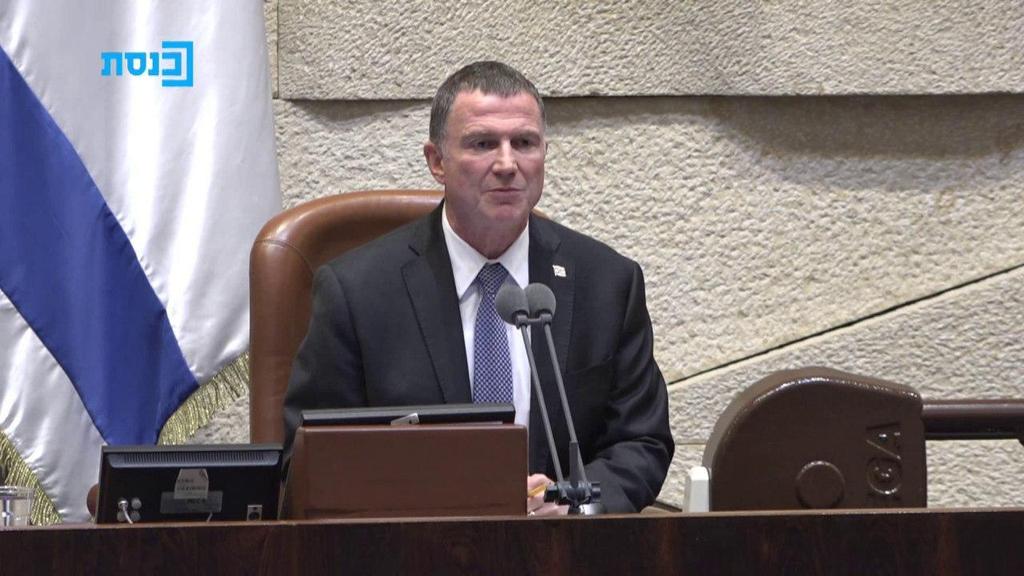Getting your Trinity Audio player ready...
A new parliament can elect a new speaker. That is a simple fact and in line with the Knesset rules.
But outgoing Knesset Speaker Yuli Edelstein - in a first for our country - seems to think the position is his own private property.
A majority of MKs demand their right to vote in a new speaker while he persists in his refusal to allow a vote.
This is the kind of rare occasion that demands judiciary intervention. We have seen cases in which the courts have inserted themselves in political matters in order to protect the minority. Now they must step in and protect the majority.
On Monday, the High Court, in response to a motion brought before it, opted to politely question Edelstein about whether he would be willing to permit a vote for a new speaker to take place by Wednesday. His rebuttal: "I will not succumb to your ultimatum."
This is an insolent response to a problem of his own creation and a needless provocation.
3 View gallery


Israelis protest outside the High Court over Yuli Edelstein's refusal to hold a vote on a new Knesset speaker
(Photo: Alex Kolomoisky)
Edelstein has been trying at the behest of his master Benjamin Netanyahu to trample over a parliamentary majority.
The court was quick to react and within minutes ruled that the speaker must allow the vote to take place.
This was not an act of judicial overreach. It was the necessary response to attempts to circumvent the will of the voters and the elected parliamentary majority.
Edelstein's excuses are lame. He latched on to a section of the Knesset regulations that states that a speaker must be voted in before a new government is installed.
And yes, it is within the purview of the speaker to decide the timetable of Knesset votes, but by the same logic Edelstein could block a new government that is not to his liking from assuming power simply because he can hijack the schedule and prevent a vote.
The speaker's authority must not be used in a manner that compromises Israel's democracy. Edelstein tried to do just that and the court stopped him.
This is not a parliamentary debate between the left and right sides of the political spectrum.
3 View gallery


Benjamin Netanyahu and Yuli Edelstein at a Likud faction meeting last year
(Photo: Alex Kolomoisky)
Many on the right have come out in support of the court and have said its rulings must be upheld even when they are not to their camp's liking. They could be critical of the High Court's decision but would not go so far as insubordination.
Tourism Minister Yariv Levine, who has long coveted the position of justice minister, was front and center in defiance of the ruling. He urged the speaker to rebuff the court's questions and tweeted some insults at the judges.
We are on the verge of a constitutional crisis. Edelstein may persist in his refusal despite the ruling. For all our sakes, I hope he does not.
Despite many valid arguments against it, a unity government may be the only solution to the danger caused by the speaker and his political allies.
Netanyahu's proposition to the Blue & White party may well be - as many suspect - nothing more than a scam. The prime minister may never agree to vacate his seat and allow his political opponents to assume power, but unity is still the best option.
A narrow government will result in entrenchment by both political camps; incitement will follow and the war on our judicial system will cause more damage.
Behind the scenes, Netanyahu is running the show; he alone is navigating his people towards a collision with the judicial system.
Even so, a narrow government that banishes him to the opposition and leaves him naked to face his own criminal charges will certainly unleash worse scenarios than a unity government ever could.


